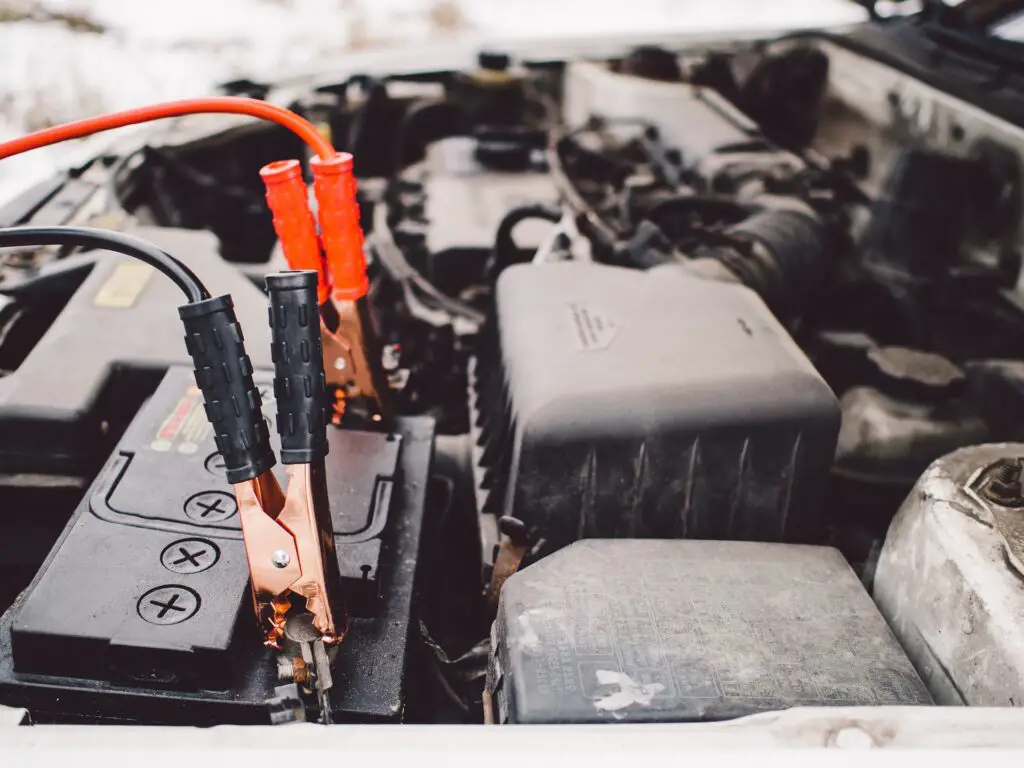When it comes to car batteries, the goal is simple: keep them charged and ready to go. But can you overdo it? Is it possible to overcharge a car battery? The short answer is yes. Overcharging a car battery can be damaging, and in some cases, even dangerous.
Let’s dive deep into the mechanics of how overcharging happens, why it’s harmful, and how you can avoid this common mistake to keep your battery and car running smoothly.
How Overcharging a Car Battery Happens
A car battery is typically charged by the alternator while the engine is running. This process usually keeps your battery in a safe, optimal range of about 12.6 to 14.4 volts. However, charging outside of this range can lead to overcharging.
- Using the Wrong Charger: Many at-home battery chargers, especially older models, don’t stop charging once the battery is full. This is particularly common with “dumb” chargers that lack a cutoff feature.
- Faulty Alternator: If the alternator’s voltage regulator fails, it can allow an uncontrolled flow of current to the battery, resulting in overcharging.
- Leaving the Charger On Too Long: If you’re using a charger without an automatic shut-off feature, leaving it connected for too long can easily overcharge the battery.
When any of these scenarios occur, you can end up with an overcharged battery, and that’s where things get problematic.
What Overcharging Does to a Car Battery
Overcharging affects a car battery’s chemistry, structure, and functionality. Lead-acid batteries, the most common type in vehicles, are highly sensitive to overcharging.
1. Heat Buildup
When a battery is overcharged, it generates excess heat, which can cause several issues:
- Accelerated Wear: The heat speeds up the degradation of the battery plates, which weakens the battery over time.
- Evaporation of Electrolytes: Excessive heat can cause the battery’s internal electrolyte (a mix of sulfuric acid and water) to evaporate, leaving the battery dry and unable to hold a charge.
2. Gas Production
Overcharging can lead to the production of hydrogen and oxygen gases inside the battery. This causes two major problems:
- Swelling and Bulging: The build-up of gas can cause the battery case to swell or even burst in severe cases.
- Explosion Risk: If too much gas builds up, especially if there’s a spark nearby, the battery could explode, which is both dangerous and damaging.
3. Permanent Capacity Loss
Once a battery has been overcharged, it rarely returns to its original state. The lead plates can warp or corrode, permanently reducing the battery’s ability to hold a charge.
Signs of an Overcharged Battery
How can you tell if your car battery has been overcharged?
Here are some red flags:
- Swollen Battery Case: A battery that looks swollen, bulged, or misshapen likely has internal damage from overcharging.
- Unusual Smell: Overcharging can create a distinct sulfur smell, similar to rotten eggs, caused by escaping hydrogen sulfide gas.
- High Voltage Readings: If you test the battery with a multimeter and it reads significantly higher than 14.4 volts, it could be overcharged.
- Excessive Heat: If the battery feels very hot to the touch even after it’s been off the charger, that’s a sign it’s likely been overcharged.

How to Prevent Overcharging
Fortunately, with a few simple precautions listed here for every driver and car owner, overcharging is easy to avoid.
1. Use a Smart Charger
Smart chargers are designed to detect when the battery reaches full charge and automatically stop or switch to a “trickle” charge, which keeps the battery topped off without overcharging.
2. Check Your Alternator Regularly
Your alternator’s voltage regulator should keep the charging rate within safe limits. Regular maintenance checks will ensure it’s working properly. A faulty regulator could overcharge the battery if left unchecked.
3. Monitor Charging Times
If you’re using a manual charger, make sure you’re not leaving it on for too long. Most car batteries only need a few hours to charge fully from empty. Consult your battery manufacturer’s guide for recommended charging times.
4. Consider a Battery Tender for Long-Term Use
If you don’t drive your vehicle often, a battery tender (a specialized type of trickle charger) can help keep the battery charged without risking overcharging. Battery tenders are designed for long-term connection and will keep the battery topped off without the risks associated with standard chargers.
What to Do If You’ve Overcharged Your Battery
If you suspect your battery has been overcharged, act quickly to minimize damage.
- Turn Off the Charger: Disconnect the charger immediately if it’s still running.
- Allow the Battery to Cool: Wait for the battery to return to room temperature before attempting to test or use it.
- Inspect for Damage: Look for signs of swelling, leaks, or a foul odor. If any of these are present, it’s safest to replace the battery entirely.
- Check the Voltage: Use a multimeter to test the battery’s voltage. If it’s above 14.4 volts, let it rest and re-test after a few hours.
If the battery has sustained visible or functional damage, replacement is the best option. Continuing to use a damaged battery can lead to performance issues and even safety hazards.
Final Thoughts
Car batteries don’t need much attention to work reliably, but avoiding overcharging is critical to their health. By using the right charger, watching charging times, and keeping an eye on your alternator, you can ensure your battery stays in peak condition and lasts for as long as possible.
Remember, a little maintenance goes a long way. Overcharging may seem like a small error, but it can cost you a new battery or even lead to dangerous situations if left unchecked. Keep these tips in mind, and your battery will reward you with a longer, healthier life.
Discover more from Chikwem
Subscribe to get the latest posts sent to your email.